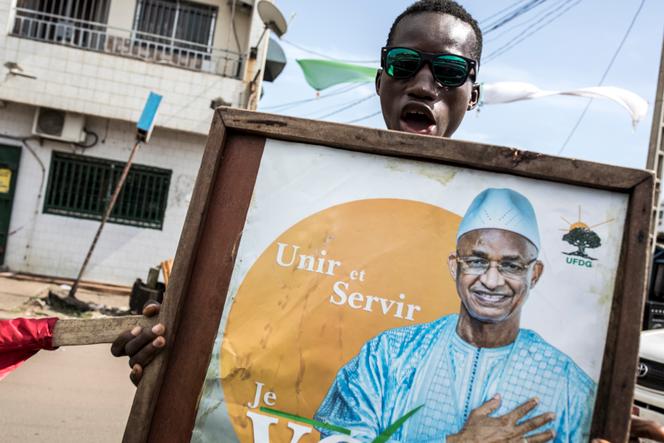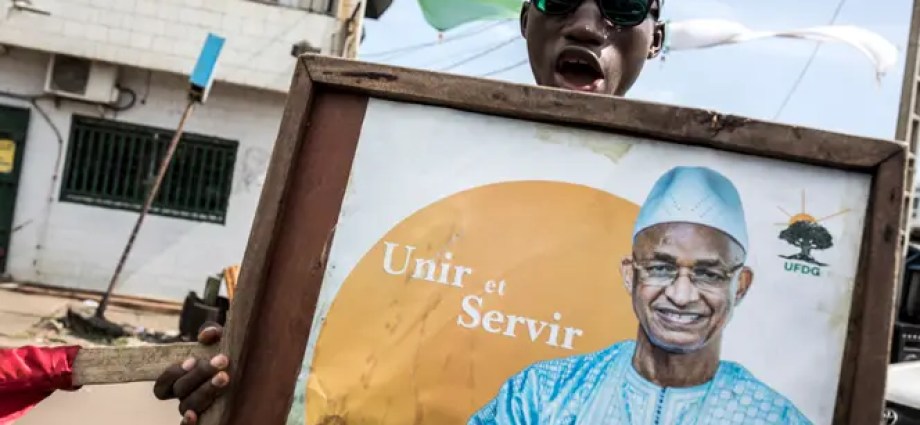Guinea’s Junta Suspends Opposition Parties Ahead of Constitutional Referendum

In a move that has intensified political tensions in Guinea, the ruling military junta has suspended three major opposition parties for ninety days, just weeks before a critical constitutional referendum scheduled for September 21. The decision, announced by the Ministry of Territorial Administration on Saturday, has been met with fierce resistance from opposition leaders, who have labeled the suspension as “illegal” and vowed to challenge it in court.
Opposition Parties Targeted
The suspended parties include the Union of Democratic Forces of Guinea (UFDG), led by former Prime Minister Cellou Dalein Diallo, and the Rally of the Guinean People (RPG), associated with former President Alpha Condé. According to the government, these parties failed to meet their “obligations,” though specific details regarding these alleged failures remain vague.
Diallo’s UFDG was quick to respond, issuing a statement on Sunday condemning the suspension as unlawful and announcing plans to seek judicial recourse. “The UFDG reserves the right to appeal to the Supreme Court to demand the cancellation of this decision,” the party declared, signaling a deepening standoff between the junta and its political opponents.
Timing and Political Context
The suspension comes at a highly sensitive time. Opposition groups and civil society organizations had already called for nationwide protests beginning September 5, arguing that the constitutional referendum is a thinly veiled attempt by junta leader General Mamadi Doumbouya to consolidate power. Many fear the new constitution could reset term limits and allow Doumbouya, who seized power in a September 2021 coup, to run for president in future elections.
General Doumbouya ousted long-serving President Alpha Condé, whose controversial bid for a third term had sparked widespread unrest and allegations of authoritarian overreach. Since taking control, the junta has promised a return to civilian rule but has faced criticism for delaying elections and suppressing dissent.
A Contentious Constitutional Process
In late June, a draft constitution was presented to General Doumbouya, ostensibly to pave the way for a return to constitutional order. However, the text has been criticized for its lack of clarity regarding whether junta members—including Doumbouya himself—would be eligible to contest future presidential elections.
Under the current transition charter, which was established shortly after the coup, members of the junta, government, and transitional institutions are barred from running for office. The adoption of a new constitution could potentially nullify these restrictions, raising concerns among opposition figures and pro-democracy advocates.
Historical Precedents and Regional Implications
Guinea has a long history of political instability and authoritarian rule. From Sekou Touré’s oppressive regime to Lansana Conté’s prolonged tenure and Alpha Condé’s contested presidency, the country has struggled to establish durable democratic institutions. The current junta’s actions are being closely watched both domestically and internationally, as they could set a precedent for other military-led governments in West Africa.
Regional bodies such as the Economic Community of West African States (ECOWAS) have repeatedly expressed concern over the delay in Guinea’s transition to civilian rule. The suspension of opposition parties is likely to further strain relations between Conakry and its international partners.
Legal Challenges and Civil Society Response
The UFDG’s planned legal challenge is not its first confrontation with the junta over procedural matters. In late June, the Ministry of Territorial Administration ordered the party to postpone its July 6 congress, citing risks of public disorder. The decision followed threats from dissident party members—including government spokesperson Ousmane Gaoul Diallo, who was expelled from the UFDG after accepting a position in the junta-appointed administration.
The UFDG contested the ministry’s order and filed a case with the Supreme Court. A ruling was expected on Thursday, though it remains unclear whether the court will rule independently amid mounting political pressure.
Broader Implications for Democracy
The suspension of opposition parties so close to a major referendum raises serious questions about the fairness and transparency of Guinea’s political process. Without robust opposition voices, the constitutional debate may become one-sided, undermining the legitimacy of the outcome.
Civil society organizations, including the National Front for the Defense of the Constitution (FNDC), have condemned the junta’s actions and reiterated their call for peaceful demonstrations. “We will not allow the military to hijack our democracy,” said one activist, who requested anonymity for fear of reprisal.
International Reaction
The international community has yet to issue a unified response to the latest developments. However, foreign embassies and international NGOs have previously expressed concern over shrinking civic space in Guinea. The United Nations and African Union are likely to monitor the situation closely, especially if protests escalate in the coming weeks.
France, Guinea’s former colonial ruler, and other Western nations have called for a swift and inclusive transition. Whether these calls will influence the junta’s behavior remains to be seen.
What’s Next for Guinea?
With less than a month until the referendum, the political climate in Guinea is increasingly volatile. The junta appears determined to proceed with the vote, while opposition groups are mobilizing supporters to resist what they describe as a constitutional coup.
The coming weeks will be critical. Will the Supreme Court intervene to reverse the suspension? Will protests gain momentum? And most importantly, will the international community exert enough pressure to ensure a fair and peaceful process?
One thing is clear: Guinea stands at a crossroads. The decisions made in the coming days could shape the country’s political trajectory for years to come.


